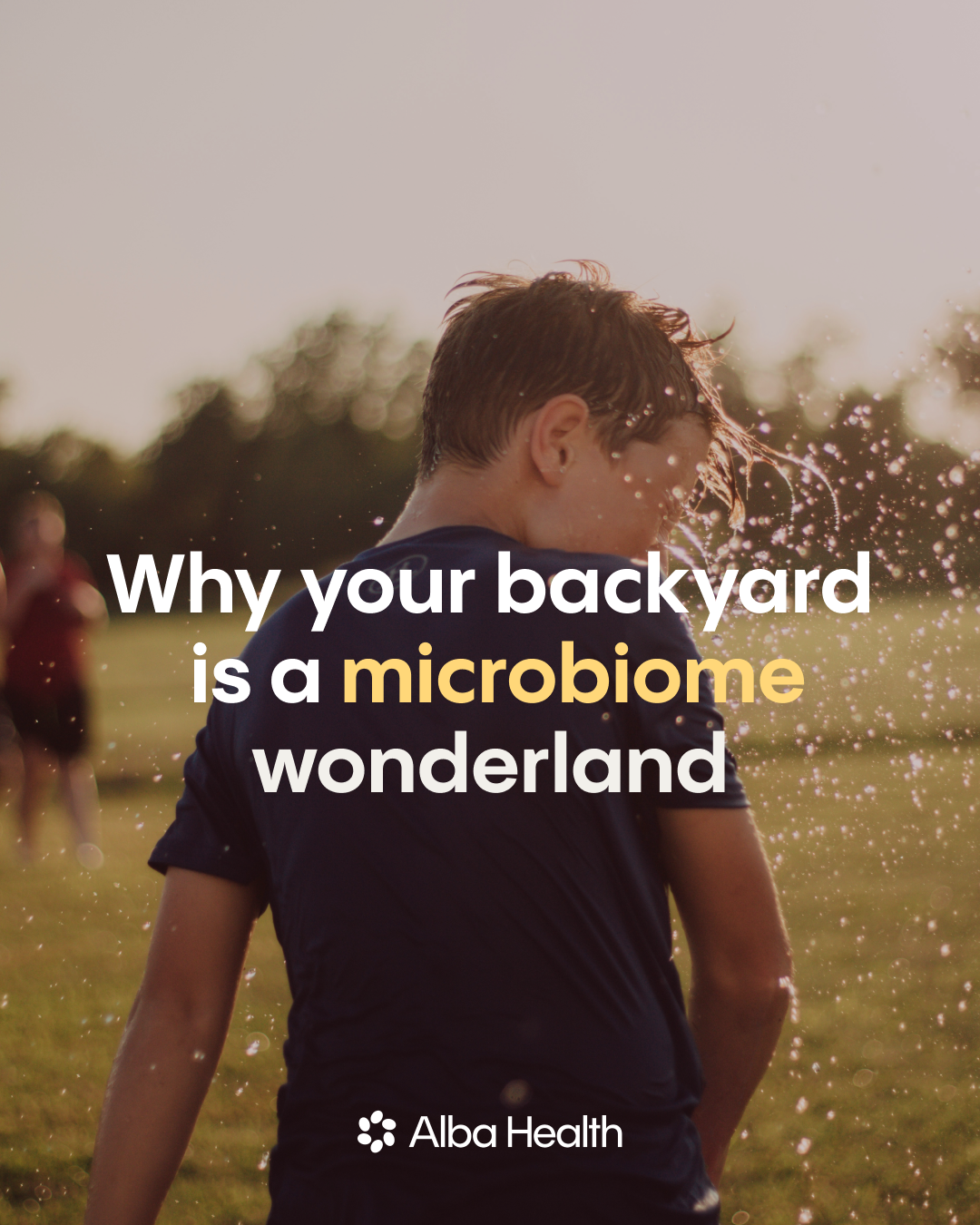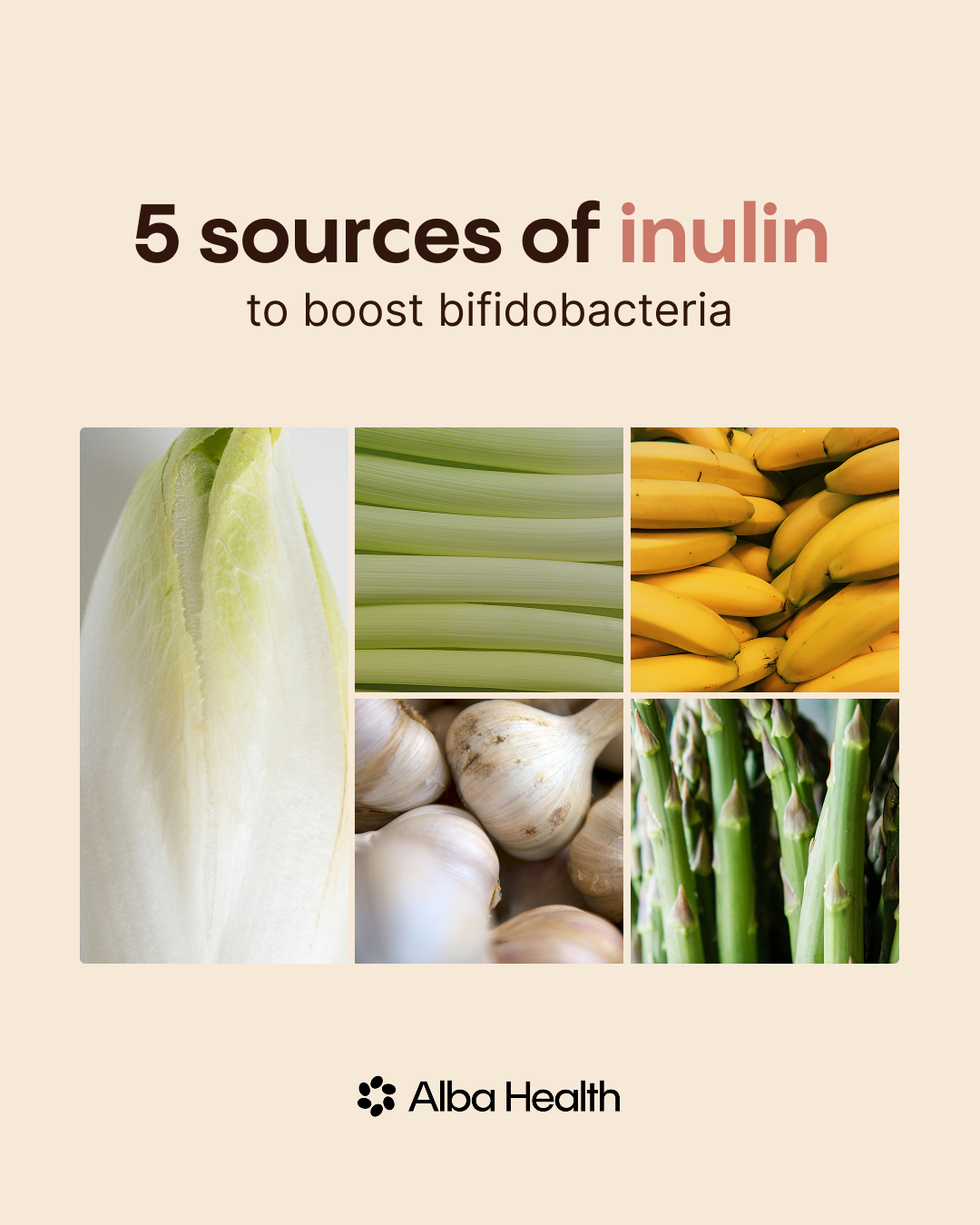
Supporting your baby’s gut after C-section
A C-section can be life-saving and medically necessary for many reasons. But they also change how babies are first exposed to beneficial microbes. Instead of gaining important gut bacteria from their mother during birth, C-section babies are first exposed to skin and hospital microbes. This can affect how their gut microbiome develops in those crucial first months.
Learn more
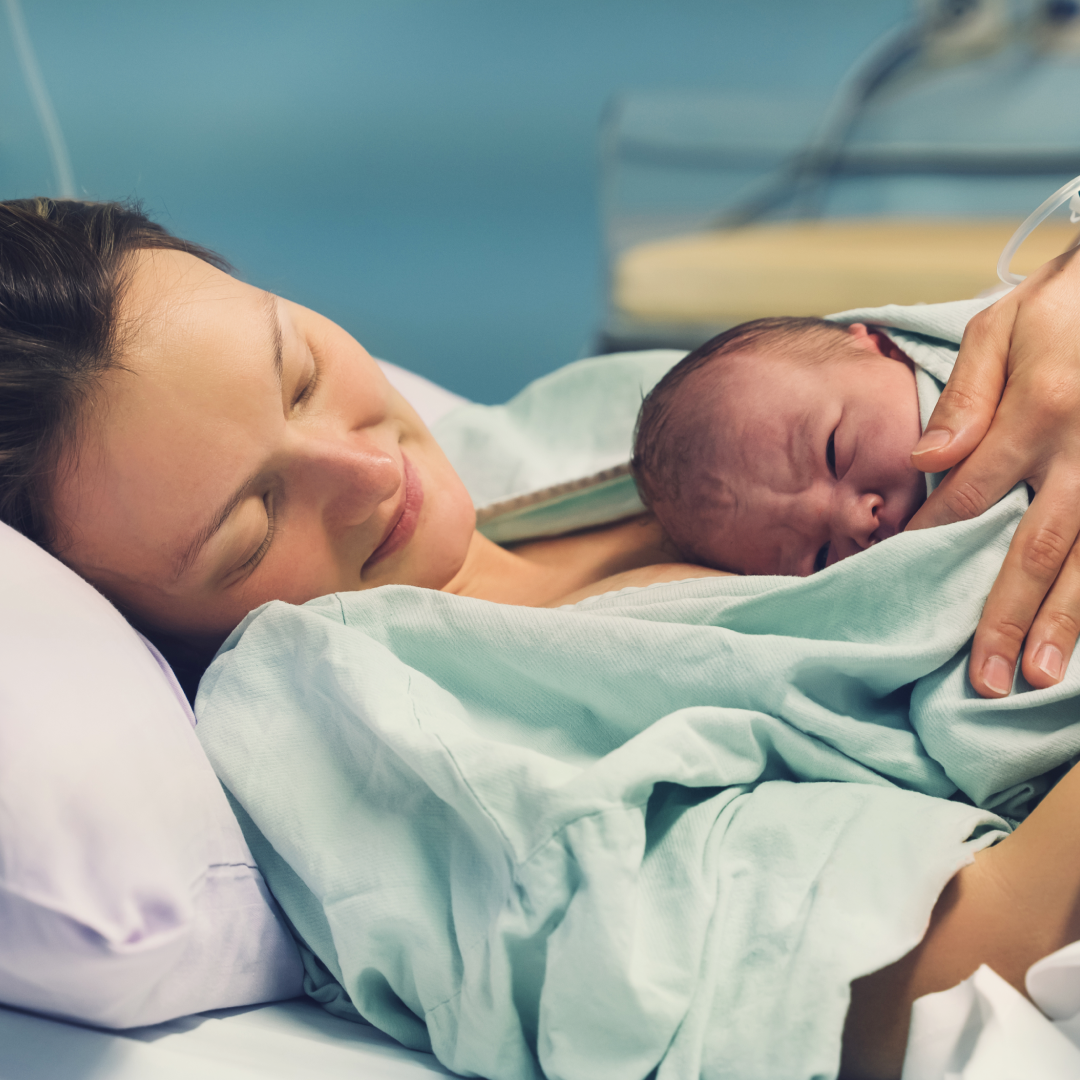
C-section birth and the gut: Why it matters
Your baby’s gut microbiome plays a key role in building the immune system, supporting digestion, and guiding metabolism. Babies born by C-section often have fewer of the beneficial bacteria, like Bifidobacteria, that are linked to lower risk of allergies, asthma, and obesity later in life.
The good news? By understanding how your child’s gut microbiome is developing, you can take steps to support it.

Knowledge is the first step to action
There are ways to help. Breastfeeding provides important nutrients that nourish the right gut bacteria. Studies show that in some cases, baby-specific probiotics can help restore balance. But every baby’s gut is different – especially after a C-section.
That’s why knowledge is key. By testing and understanding your baby’s gut microbiome, you can make informed choices that truly support their health.
Take the first step
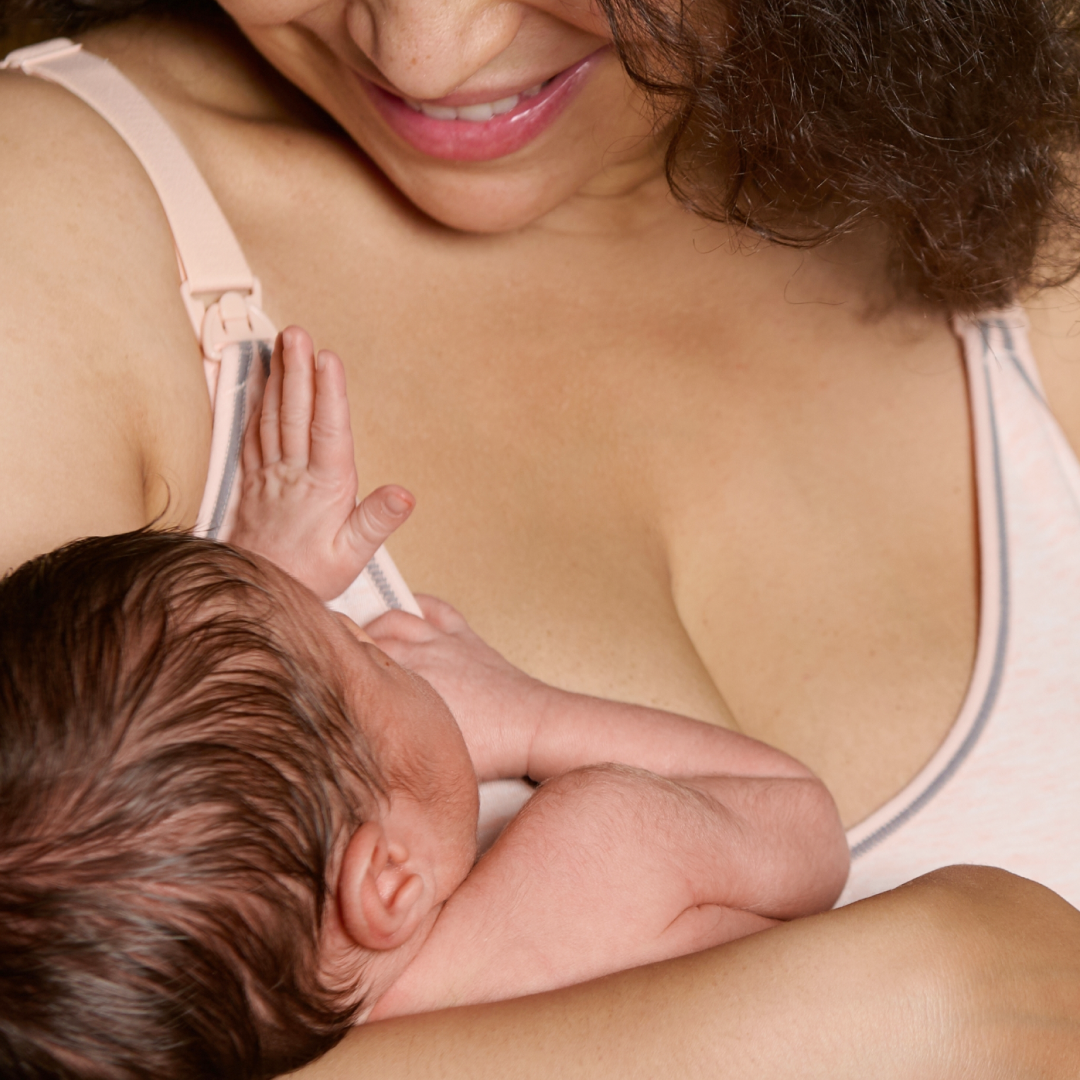
Developed by scientists from Karolinska, KTH and Uppsala University
Give the gut a healthy start after C-section
Our gut microbiome test for children helps you see how your baby’s gut microbiome is developing after a C-section. We guide you through the results, so you can take confident next steps – including expert-backed advice on nutrition and probiotics.
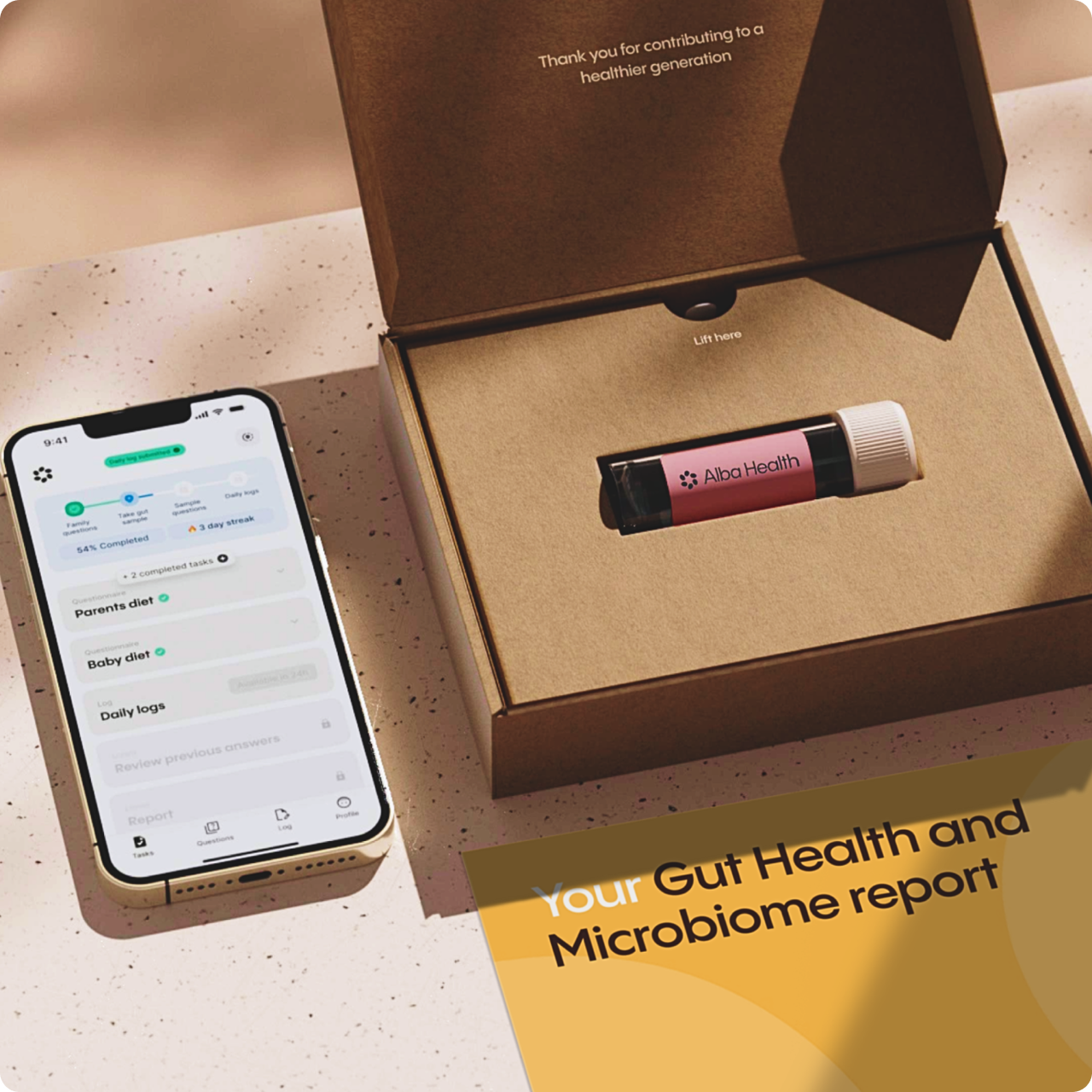


★★★★★
“Very helpful”
My experience with Alba Health was great. The knowledge of the composition of the bacterias in the gut of my daugter was very helpful. The report was very clear and with many suggestions to how improve the good bacterias. Furthermore, I spoke with the nutrition and health coach that gave me some helpful tips for weaning.
– Roberta, verified Alba-customer
FAQ
In children, it depends on the age. The baby's microbiome is constantly evolving from birth to adulthood, so monitoring its trajectory and development over time is even more informative than looking at only one snapshot.
From one microbiome test, you will discover:
- Levels of friendly bacteria, promoting healthy development
- Levels of unfriendly bacteria, as some types of bacteria are known to be unfriendly when in large share, being able to cause infections and inhibit friendly bacteria
- Gut microbiome diversity, which is associated to health and wellbeing
- Associations with constipation, from our clinical study in Sweden
- Levels of bacteria promoting immune system development and associated to lower risk of allergy and eczema
- Levels of bacteria promoting metabolic health and associated to healthy weight
- Levels of bacteria promoting brain health and cognition
- Most importantly, you will receive a set of personalized recommendations covering diet, environmental exposure, behavior and probiotic supplements (if needed) reviewed by our medical experts and discussed with you in a 1:1 consultation with a certified Nutrition & Health Coach. You will also receive 3 simple example recipes that promote optimal gut health.
References: Stewart CJ, Ajami NJ, O'Brien JL, Hutchinson DS, Smith DP, Wong MC, Ross MC, Lloyd RE, Doddapaneni H, Metcalf GA, Muzny D, Gibbs RA, Vatanen T, Huttenhower C, Xavier RJ, Rewers M, Hagopian W, Toppari J, Ziegler AG, She JX, Akolkar B, Lernmark A, Hyoty H, Vehik K, Krischer JP, Petrosino JF. Temporal development of the gut microbiome in early childhood from the TEDDY study. Nature (2018);
The first months of life are a key window for supporting your baby’s gut microbiome – this is when it’s developing and most adaptable. The earlier you take steps, the more you can help beneficial bacteria grow and thrive. But it’s never too late. Even for older babies or children, understanding the gut microbiome can help guide choices that support long-term health.
Probiotics can be helpful for some babies born by C-section, but it’s important to choose the right strains – not all probiotics are the same. Some are specially adapted for babies and may support gut health more effectively. Testing your baby’s gut microbiome first means you can choose what’s truly suited to their needs.
Our test is currently designed for children ages 0–13. We’re working on expanding to more age groups and hope to offer that soon!
From a stool sample, we are able to collect the DNA of all gut microbes. From their DNA we can tell exactly which bacteria are present and what they are doing in your gut. We analyze bacterial DNA only, and we do not analyze your own DNA.
More questions?
Contact us




Shaping a healthier tomorrow
Join us in advancing gut health understanding for the generations to come.



